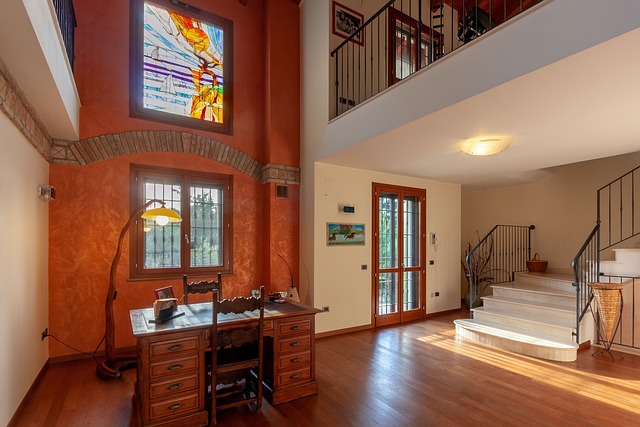The global pandemic prompted a dramatic shift to remote work, causing significant changes in office spaces and real estate demands. Companies are now exploring flexible options like hybrid work or smaller satellite offices, leading to a decrease in demand for large centralized locations. This has resulted in cities repurposing unused commercial areas and transforming business districts into mixed-use developments that blend residential, retail, and recreational spaces. Real estate professionals need to adapt their strategies to meet new demands, focusing on underserved markets with properties offering robust internet connectivity, green spaces, and proximity to essential services.
The rise of remote work has profoundly impacted commercial real estate demand, ushering in a new era for businesses and urban landscapes. This shift has led to a significant redefinition of office spaces, with traditional concepts being challenged and innovative designs emerging. As more companies embrace remote work, real estate professionals must adapt their strategies to meet evolving market needs. This article explores these transformations, offering insights into the future of commercial real estate in light of this revolution.
The Shift to Remote Work and Its Impact on Commercial Real Estate Demand

The sudden and unprecedented shift to remote work, accelerated by the global pandemic, has had profound implications for commercial real estate demand. As companies scrambled to support their workforce operating from home, traditional office spaces faced significant downsizing and reconfiguration. The decline in foot traffic and lease expirations led to a temporary slowdown in the market, with landlords and developers forced to adapt their strategies.
This new working paradigm has prompted a re-evaluation of space requirements and utilization. Many companies are now exploring options that offer greater flexibility, such as hybrid work arrangements or smaller, satellite offices. As a result, demand for real estate has shifted from large, centralized spaces towards more decentralized locations, closer to employees’ homes. This change is expected to reshape urban landscapes, with implications for both commercial property values and the development of mixed-use neighborhoods.
How Remote Work is Redefining Office Spaces and Urban Landscapes

Remote work has sparked a significant shift in how we perceive and utilize office spaces, leading to a redefinition of urban landscapes. With many professionals now based at home, the demand for traditional, large-scale offices has decreased, causing a ripple effect throughout the real estate market. This change has allowed cities to evolve, with some even questioning the necessity of dense, office-centric areas.
As a result, there’s a growing focus on repurposing excess commercial space and rethinking urban planning. Once bustling business districts may now accommodate mixed-use developments, incorporating residential, retail, and recreational spaces. This transformation is not only changing the physical look of cities but also their overall vibrancy, promoting more sustainable and diverse communities.
Strategies for Real Estate Professionals in the Age of Remote Work Revolution

In the age of remote work revolution, real estate professionals must adapt their strategies to meet evolving commercial demands. With many employees opting for remote work, there’s a shift in office space needs. Traditionally high-demand areas may see a decrease in commercial property value and leasing activity as companies downsize or relocate to more affordable, suburban or rural locations with ample space for home offices. This presents opportunities for real estate agents to specialize in these underserved markets.
Additionally, the rise of remote work highlights the importance of location-independent amenities near residential areas. Properties with robust internet connectivity, green spaces, and proximity to grocery stores and other essential services gain prominence. Real estate professionals who can identify and promote these attributes will be well-positioned to cater to the changing preferences of remote workers seeking balanced lifestyles.






